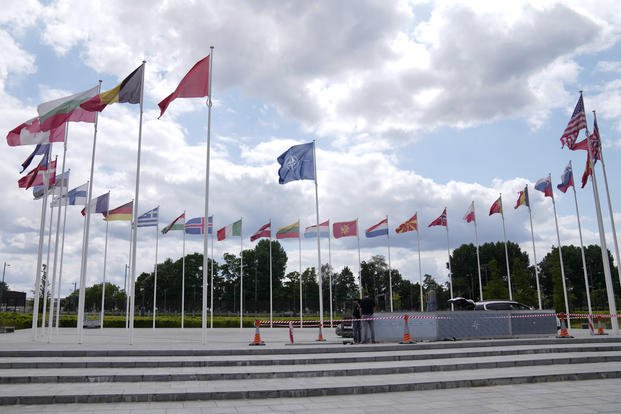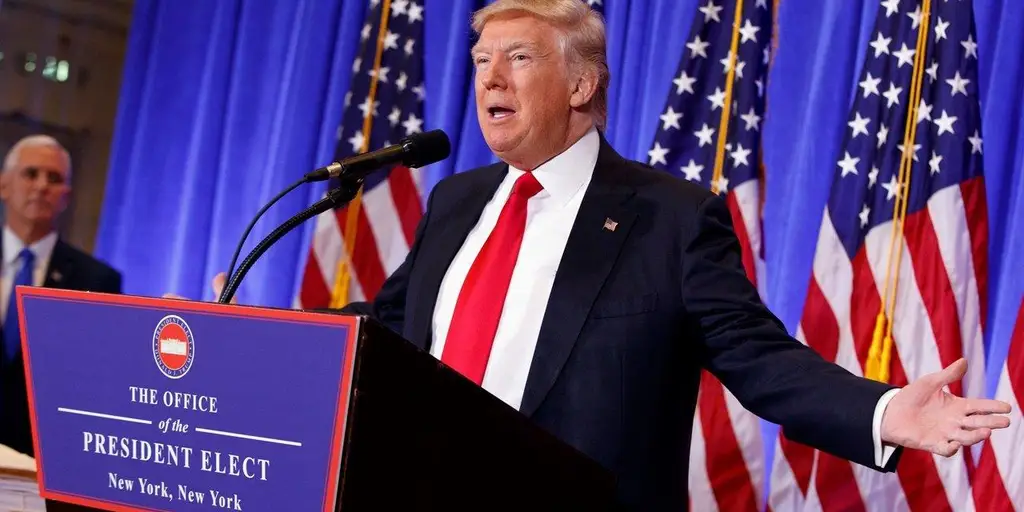The specter of a second Trump administration looms ominously over global security, as NATO finds itself at a crossroads of unprecedented challenges. President Trump’s notorious skepticism towards the North Atlantic Treaty Organization has not just rattled the foundations of this critical alliance but has also led to alarming new policies that prioritize military expenditure over diplomatic stability.
Trump"s NATO Strategy Undermines Collective Security
Since its inception after World War II, NATO has served as a vital bulwark against aggression, particularly from Russia. The alliance’s principle of collective defense, enshrined in Article 5, has been a cornerstone of transatlantic security. However, under Trump’s leadership, this commitment is increasingly being questioned. As reported by Georgetown Law, Trump’s previous threats to withdraw from NATO have instilled a deep sense of insecurity among member nations.
New Defense Spending Targets Raise Eyebrows
During a recent NATO summit, member nations, under pressure from Trump, pledged to increase their defense spending to 5% of GDP by 2035, a dramatic leap from the previous 2% standard. This commitment, which Trump demanded, signals a shift in focus away from cooperative security measures towards militarization, diverting resources that could be better spent on social programs and climate initiatives.
Economic Implications of Increased Military Spending
Many NATO countries will face a daunting task of doubling their defense budgets to meet this new target. According to BBC, this financial strain could lead to cuts in essential public services, impacting healthcare, education, and infrastructure. The prioritization of military spending over social welfare is a dangerous precedent that echoes the military-industrial complex"s influence over American policymaking.

NATO"s Unity Will Be Tested at Summit in Vilnius | Military.com
Rutte"s Role as NATO Secretary General
Mark Rutte, the newly appointed NATO Secretary General, is caught in a precarious position. His recent remarks to Trump, which included jokingly referring to the former President as a "daddy" figure for misbehaving nations, reflect a troubling willingness to appease a leader whose policies threaten the very fabric of international cooperation. Rutte"s commitment to keeping Trump satisfied, as highlighted by The Washington Post, raises concerns about NATO"s ability to adapt to a more dangerous global landscape.
U.S. Military Presence in Europe Faces Uncertainty
As NATO grapples with the consequences of increased spending, the U.S. military presence in Europe is also in jeopardy. Reports suggest that the U.S. is considering relocating thousands of troops out of Europe, further destabilizing the region. This potential withdrawal, coupled with Trump’s recent decision to halt weapons shipments to Ukraine, signals a retreat from the traditional American leadership role in NATO. The implications for European security are dire, especially given the ongoing threats posed by Russia"s expansionist ambitions.
Impact on Global Alliances and Democracy
The ramifications of Trump"s NATO policies extend far beyond military budgets. As countries are forced to prioritize defense spending, the very principles of democratic governance and civil rights are at risk. Investment in military capabilities often comes at the expense of civil liberties and social justice initiatives. The shift towards militarization threatens to exacerbate inequalities both within NATO countries and globally.

Donald Trump holds first news conference since election | Fox News Video



![[Video] Gunfire between Iraqi security forces and Sadr militias in Baghdad](/_next/image?url=%2Fapi%2Fimage%2Fthumbnails%2Fthumbnail-1768343508874-4redb-thumbnail.jpg&w=3840&q=75)
